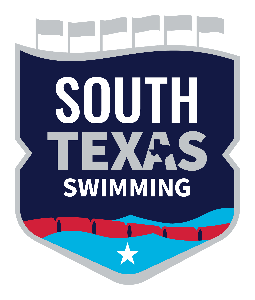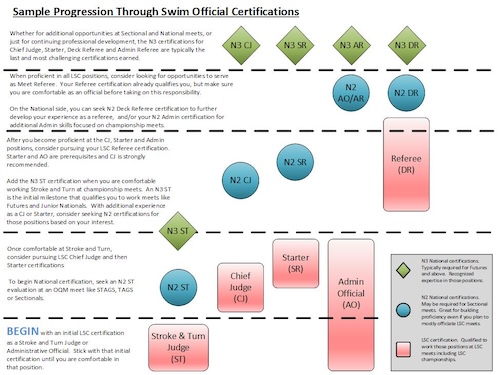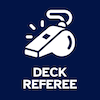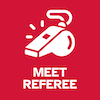New Officials Current Officials Training & Advancement Financial Assistance USA Swimmiing
Training & Advancement
Between South Texas Swimming LSC certifications and National Officials certifications, there are more than dozen separate certifications an official can pursue and earn. Learn more by reading through the FAQ. You can also click to open a larger Advancement Process chart or download the PDF for more information about progression through various certifications.
Click to view larger image
Certification Process
 If you are viewing the table from a mobile device you may have to slide left and right to view each column or rotate your phone.
If you are viewing the table from a mobile device you may have to slide left and right to view each column or rotate your phone.
| POSITION | CLINIC | PERFORMANCE GUIDE |
PERFORMANCE EVALUATION |
CERTIFIER(S) |
|---|---|---|---|---|
| STROKE & TURN | Foundations of Officiating Stroke and Turn Certification Course |
LINK | LINK | N3 ST -or- LSC Referee -or- Officials Committee ST |
| CHIEF JUDGE | LINK | LINK | LINK | N2 or N3 CJ -or- Experienced LSC Referee who is CJ -or- Officials Committee CJ *An experienced Referee is one formerly held an MR certification or has been an LSC DR for at least 2 years and 24 sessions |
| STARTER | LINK | LINK | LINK | N2 or N3 SR -or- Experienced* LSC Referee who is SR -or- Officials Committee SR *An experienced Referee is one formerly held an MR certification or has been an LSC DR for at least 2 years and 24 sessions |
| REFEREE | LINK | LINK | LINK | N2 or N3 DR -or- Experienced* LSC Referee -or- Officials Committee DR *An experienced Referee is one formerly held an MR certification or has been an LSC DR for at least 2 years and 24 sessions |
| ADMIN | LINK | LINK | LINK | N2 or N3 AO/AR -or- Experienced* LSC AO -or- Officials Committee AO *An Experienced AO is one formerly held an AR certification or has been an LSC AO for at least 2 years and 24 sessions |
Clinic Schedule
Clinics for new officials are being scheduled for 2024. Please check back for updates.
| Clinic | Date | Location | Presenter(s) | Sign-Up Link |
|---|---|---|---|---|
| New Stroke & Turn Officials | All Stroke & Turn Clinics are now provided online by USA Swimming. New officials must take Foundations of Officiating (30-minutes), followed by Stroke & Turn Certification (90-minutes). Both courses are available to take at your convenience through USA Swimming University. | |||
| CJ Clinic | Wed, May 1 @6:30pm | Online | Steve Mandacina(email) | LINK |
| DR-to-MR | Tue, May 7 @7pm | Online | Marc Digby / Heidi Hornik-Parsons | LINK |
| DR-to-MR | Wed, May 29 @7pm (Rescheduled) |
Online | Trey Prinz / Lorna Anaya | LINK |
Training Presentations
FAQ
1. Did all the certification rules just change? Why did they change?
2. What does the evaluation entail?
3. Who can do the evaluations? What is a 'Certifier'?
4. If I am asked to evaluate someone, do I have to?
5. How do I evaluate someone if I am asked?
6. Am I required to train for new positions? How soon should I seek advancement?
7. When should I begin training for Chief Judge?
8. When should I begin training for Starter?
9. When should I begin training for Admin Official?
10. When should I begin training for Referee?
11. When should I begin training for Meet Referee?
12. Am I required to seek national certifications (N2, N3, etc.)?
14. If I want to pursue a national certification, what do I?
15. When should I seek an evaluation for N2 Stroke & Turn Judge?
16. When should I seek an evaluation for N3 Stroke & Turn Judge?
1. Did all the certification rules just change? Why did they change?
Yes! Generally, certification rules became simpler. Most certifications still require a clinic and test, but now only require 4 on-deck training sessions (instead of 6 or 8 or 10). However, each apprentice must now pass one or more evaluations by 'Certifier'. All the details are listed in the PPGO. The certification rules changes were the result of legislation passed by USA Swimming. You can see the rule in Section 33 of USA Operation Policy Manual and see more info on their published FAQ.
2. What does the evaluation entail?
The evaluation for each position is just a series questions (in an online Google form) where the Certifier is asked to rate the Apprentice on a scale of 1-3 in criteria associated with that position. A ‘2’ or better in each criterion is considered passing. STX publishes Performance Guides (linked above) for each position that list the criteria. We recommend apprentice officials review these guides as part of their training and ask their on-deck mentors about any criteria they aren’t familiar with.
3. Who can do the evaluations? What is a ‘Certifier’?
A ‘Certifier’ is just one of your fellow officials who has enough experience in a particular position to evaluate others. You might be Certifier for some positions! Generally, those with national certifications and Referees are qualified to evaluate others, but check the specifics in the table above or in the PPGO.
4. If I am asked to evaluate someone, do I have to?
No, evaluating another official is not required, but it is encouraged. Remember, the apprentice is just asking for your guidance and mentoring regarding whether or not they are ready to be certified in a new position. Try to share what you know and help them on their path to advancement.
5. How do I evaluate someone if I am asked?
First, confirm that you are a qualified ‘Certifier’ in that position. If you are, then follow the Evaluation link on the STX Officials Training & Advancement web page for that position and fill in all the ratings. It should only take a few minutes. Remember, any ratings below a ‘2’ need to be accompanied by a recommended action plan for how to improve. We strongly recommend that Apprentices and Certifiers talk through the published Performance Guides before an evaluation is filled out, to avoid any surprises.
6. Am I required to train for new positions? How soon should I seek advancement?
No. You can continue to officiate in your initially certified role (Stroke & Turn Judge or Admin Official) as long as you like. You’re a volunteer, so do what you enjoy. If you are interested in advancing, we recommend that you develop proficiency and confidence in each position before moving to the next one. It’s better to be good at one or two things than mediocre at all of them. See additional guidance below.
7. When should I begin training for Chief Judge?
You can begin training as a CJ as soon as you have completed 16 sessions as a certified Stroke & Turn Judge (per the PPGO) and are comfortable and confident in your skills as a Stroke & Turn Judge.
8. When should I begin training for Starter?
You can begin training as a Starter as soon as you have been certified for 3 months as a Stroke and Turn Judge and completed 4 sessions over 2 meets since certification (per the PPGO) and are comfortable and confident in your skills as a Stroke & Turn Judge.
9. When should I begin training for Admin Official?
Administrative Official training can begin any time you are interested in learning the “dry side” of officiating. Certification as an Administrative Official is a prerequisite for future certification as a Referee. Even if you don’t plan to do a lot of Admin work, being familiar with those processes makes referees better at their job.
10. When should I begin training for Referee?
Referee is a position of greater responsibility since the Referee oversees the competition and officiating across the whole pool. The PPGO requires that officials be certified as Stroke & Turn Judge, Starter and Admin Official before training as a Referee. We recommend that you wait to train as a Referee until you are very comfortable officiating as a Stroke & Turn Judge, Chief Judge and Starter, because the Referee must oversee those other positions, and sometimes provide guidance and mentoring.
11. When should I begin training for Meet Referee?
South Texas Swimming no longer has a separate LSC certification for Meet Referee. All certified Referees (formerly Deck Referees) are now certified to act as Meet Referee and be listed on the sanction as such. Meet Referee is a position of great responsibility on the pool deck. Before acting as Meet Referee, we recommend that an official should (1) work as a Deck Referee until very comfortable in that role, (2) be comfortable managing and mentoring Stroke & Turn Judges, CJs and Starters, (3)and have a firm understanding of USA Swimming rules. Once you reach that level of proficiency and are ready to be the primary point of interaction with meet directors, coaches and athletes, you can be comfortable starting to serve as a Meet Referee.
12. Am I required to seek national certifications (N2, N3, etc.)?
No. Pursuing your N2 or N3 national certifications are completely optional. Some officials pursue them as quickly as proficiency and experience allow, and some officiate for years (or decades) without seeking national certification.
Even if you aren’t planning to work at higher level meets where national certification may be required (e.g. Futures, Junior Nationals, Nationals, Pro Series), the National Officials Certification Program is designed as a series of mentoring and advancement opportunities to help build proficiency. Even officials who only expect to officiate “close to home” often benefit from the additional mentoring and feedback that comes with pursuing N2 or N3 officiating credentials.
14. If I want to pursue a national certification, what do I?
N2 and N3 national certifications all require formal evaluations. Those evaluations happen at Officials Qualifying Meets (OQM). In our area, your first exposure to an OQM meet is typically our LSC championship (STAGS) or TAGS. Sectional meets are also always OQM meets, and some invitational meets in Texas are OQM as well (e.g. COR Winter Classic, COPS Greater Southwest). Once you are ready, apply to work an OQM meet, and request an N2 evaluation. USA Swimming publishes the requirements for N2 and N3 evaluation and certification at each position.
15. When should I seek an evaluation for N2 Stroke & Turn Judge?
You can seek N2 evaluation as soon as you meet USA Swimming’s published requirements. We recommend that you seek N2 ST as soon as possible after you are comfortable working as a Stroke and Turn Judge at a championship meet. This is commonly at the second or third championship you work.
16. When should I seek an evaluation for N3 Stroke & Turn Judge?
You can seek N3 evaluation as soon as you meet USA Swimming’s published requirements. We recommend that you seek N3 ST once you are proficient working as a Stroke and Turn Judge at a championship meet, and comfortable mentoring others in that position.
You can seek N2 evaluation as soon as you meet USA Swimming’s published requirements. We recommend seeking an N2 evaluation for an assigned position once you are comfortable working that position in a championship/OQM environment.
You can seek N3 evaluation as soon as you meet USA Swimming’s published requirements. N3 certification for assigned positions requires two separate evaluations (initial and final) at two different meets. We recommend seeking an N3 evaluation for an assigned position only after you develop mastery at that position, and are very comfortable working that position in a championship/OQM environment. Although N3 evaluations may be offered at STAGS or TAGS, sometimes they are only available at Sectional (and above) meets. An N3 official should be comfortable mentoring junior officials in that position, and may be asked to serve as a team lead at a championship meet.









